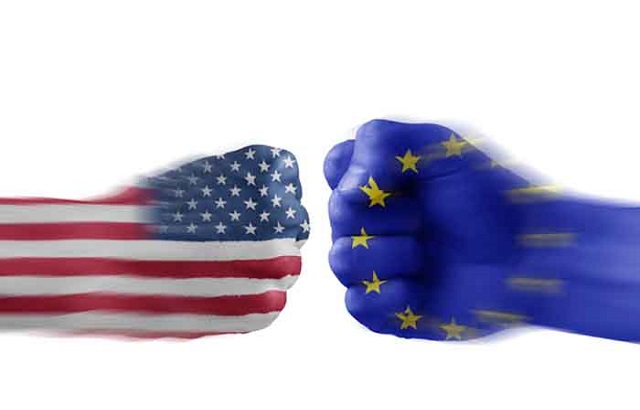The US has rejected the inclusion of four of its jurisdictions on the European Commission’s updated anti-money laundering and counter-terrorist financing (AML/CFT) list of 23 non-EU countries.
The Commission identified “high-risk third countries” for the blacklist if they were publicly named by the Financial Action Task Force (FATF). Also if they pose significant threats to the EU financial system, as a result of “strategic deficiencies” in their AML/CFT regimes.
The US jurisdictions (American Samoa, Guam, Puerto Rico, and the US Virgin Islands) join fellow newcomers Panama; Saudi Arabia; Libya; Botswana; Ghana; Samoa; and the Bahamas on the list, which has risen from 16 since its creation in July 2018.
Other states included on the inauspicious list are Afghanistan, North Korea, Ethiopia, Iran, Iraq, Pakistan, Sri Lanka, Syria, Trinidad and Tobago, Tunisia and Yemen.
Bosnia, Guyana, Laos, Uganda and Vanuatu were removed from the previous version.
The AML/CFT list is different from the tax haven blacklist produced by the EU in December 2017.
US criticism of flawed process
In response to its territories’ inclusion, the US treasury department stated: “The commitments and actions of the US in implementing the FATF standards extend to all US territories.
“The same AML/CFT legal framework that applies to the continental US also generally applies to US territories. Moreover, the treasury department was not provided any meaningful opportunity to discuss with the European Commission its basis for including the listed US territories.
“The treasury department does not expect US financial institutions to take the European Commission’s list into account in their AML/CFT policies and procedures.”
The US has “significant concerns about the substance of the list” and the “flawed process” by which it was developed, which “contrasts starkly with FATF’s thorough methodology”.
The treasury added: “First, the Commission’s process did not include a sufficiently in-depth review necessary to conduct an assessment related to such a serious and consequential issue.
“Second, the Commission provided affected jurisdictions with only a cursory basis for its determination.
“Third, the Commission notified affected jurisdictions that they would be included on the list only days before issuance.
“Fourth, the Commission failed to provide affected jurisdictions with any meaningful opportunity to challenge their inclusion or otherwise address issues identified by the Commission.
“As a result, the European Commission produced a list that diverges from the FATF list without reasonable support.”
Panama furious at ‘unjust action’
The US is not the only country unhappy with the blacklist, as Panama has also hit back.
It wants to “establish a communication channel” to address its concerns and set up “a frank and continuous dialogue” with the Commission to fight AML/CFT.
“Panama urges the European Commission to reconsider the unjust action taken against a country with a clear commitment in the fight against money laundering and the fight against the financing of terrorism,” it said in a statement.
This comes weeks after Panama enacted Law 70 of 2019, which classifies tax evasion as a crime for the first time.
Ironically, the country’s government had hoped the law would keep Panama off future Organisation for Economic Co-operation and Development and EU blacklists.
Under law 70, any individual intentionally evading taxes of $300,000 (£234,000, €266,000) or higher in a calendar year will be punished with a prison sentence of between two and five years, as well as handed a financial penalty of between two and 10 times the amount evaded.
Further, if an individual is found to have laundered proceeds from tax fraud, they will be liable for a prison sentence of between two and four years. Other money laundering crimes in Panama are punishable with higher prison sentences, of up to 12 years.
The changes follow the Panama Papers scandal, which saw millions of documents leaked revealing the questionable financial transactions of wealthy people around the globe.
Dirty money is the lifeblood of terrorism
The list is aimed at protecting the EU’s financial system by “better preventing money laundering and terrorist financing risks”.
The EU AML/CFT blacklist methodology was created based on the 5th anti-money laundering directive.
The countries assessed meet at least one of the following criteria:
– They have systemic impact on the integrity of the EU financial system;
– They are reviewed by the International Monetary Fund as international offshore financial centres; and,
– They have economic relevance and strong economic ties with the EU.
As a result, banks and other entities covered by EU AML rules will be required to apply increased checks on financial operations involving customers and financial institutions from these “high-risk third countries to better identify any suspicious money flows”.
Věra Jourová, European commissioner for justice, consumers and gender equality, said: “We have established the strongest anti-money laundering standards in the world, but we have to make sure that dirty money from other countries does not find its way to our financial system.
“Dirty money is the lifeblood of organised crime and terrorism.
“I invite the countries listed to remedy their deficiencies swiftly. The Commission stands ready to work closely with them to address these issues in our mutual interest.”
The list is not the end of the story, as the EU will follow up on progress made by the jurisdictions, monitor them and start assessing other states.
It will update the list when appropriate and will also look to “further strengthen its methodology where needed in light of experience gained”.








